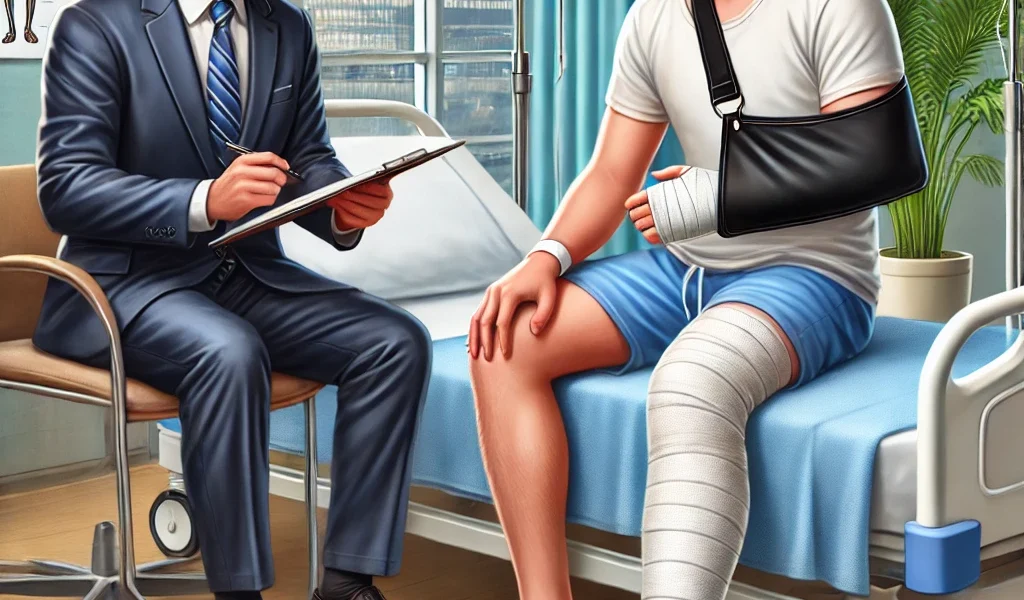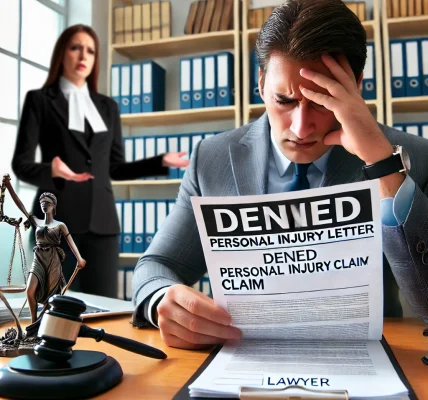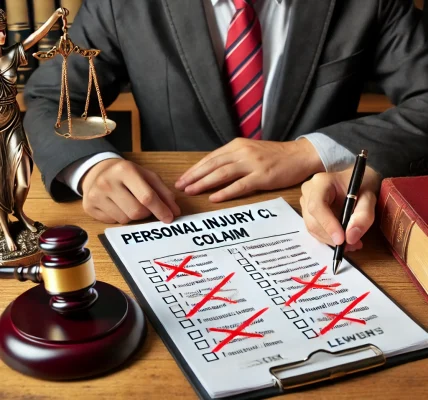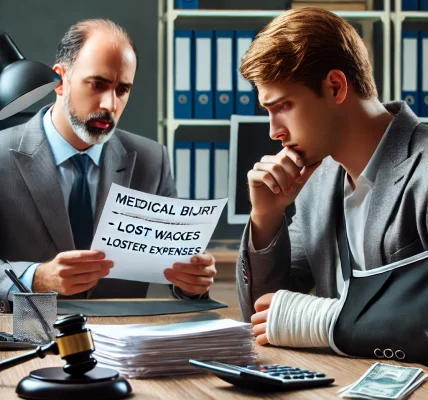Introduction
A personal injury accident can be a life-changing event, often leading to physical pain, emotional distress, and financial burdens. Whether it’s a car accident, slip and fall, or workplace injury, the actions you take immediately afterward can significantly impact your ability to secure fair compensation. Unfortunately, many victims make critical mistakes that weaken their claims and reduce their settlement amounts.
To help you navigate the legal complexities and maximize your compensation, we’ve outlined the most common mistakes people make after a personal injury accident and how to avoid them.
1. Not Seeking Immediate Medical Attention
One of the biggest mistakes after an injury is failing to seek medical care. Some victims assume their injuries are minor and delay treatment, which can be a costly error. Here’s why:
- Medical Records as Evidence: A doctor’s report serves as crucial evidence in your claim, proving the severity of your injuries.
- Hidden Injuries: Some injuries, like internal bleeding or concussions, don’t show immediate symptoms but can worsen over time.
- Insurance Company Tactics: Insurers may argue that your injuries are not serious if you delay medical treatment.
Tip: Always seek medical attention immediately after an accident and follow your doctor’s prescribed treatment plan.
2. Admitting Fault or Making Statements That Can Be Used Against You
Many accident victims instinctively apologize or make statements that could be interpreted as an admission of fault. Even saying “I’m sorry” can be used against you in a legal claim.
What to Do Instead:
- Stick to factual statements when speaking to the other party or the police.
- Avoid discussing fault and let the investigation determine liability.
- Never give recorded statements to insurance companies without consulting an attorney.
3. Failing to Document the Scene and Evidence
Lack of evidence can weaken your case significantly. The more proof you have, the stronger your claim.
What You Should Document:
- Photos and Videos: Capture the accident scene, your injuries, property damage, and any hazardous conditions.
- Witness Statements: Collect contact information from anyone who saw the accident happen.
- Official Reports: Obtain a copy of the police or incident report if applicable.
4. Not Reporting the Accident
Failing to report an accident can harm your claim. Many people avoid notifying the police or their employer, thinking the issue will resolve itself. However, without an official report, proving your claim can become challenging.
Best Practices:
- Car Accidents: Always call the police and request an official accident report.
- Workplace Injuries: Notify your employer and file an incident report immediately.
- Slip and Fall Cases: Inform the property owner or manager and request written documentation of the incident.
5. Accepting the First Settlement Offer
Insurance companies often offer quick settlements to close cases cheaply. However, these initial offers are usually far lower than what you deserve.
Why You Shouldn’t Settle Quickly:
- You may not yet know the full extent of your injuries and future medical costs.
- Once you accept an offer, you waive your right to pursue further compensation.
- An attorney can negotiate for a higher settlement based on your actual damages.
6. Posting About Your Case on Social Media
In today’s digital age, social media posts can be used against you in court. Even an innocent post about feeling “fine” after an accident can be taken out of context and used to dispute your claim.
Avoid These Social Media Mistakes:
- Do not post about the accident, your injuries, or ongoing legal proceedings.
- Avoid sharing photos that contradict your claims (e.g., engaging in physical activities while claiming injury).
- Ask friends and family not to tag you in posts that could harm your case.
7. Not Following Your Doctor’s Orders
If you fail to follow your prescribed medical treatment, the insurance company may argue that you aren’t as injured as you claim. Missing appointments or disregarding medical advice can severely weaken your case.
What to Do:
- Attend all scheduled medical appointments.
- Follow your treatment plan, including therapy and medications.
- Keep detailed records of all treatments and expenses.
8. Handling the Case Without an Attorney
Many victims try to negotiate with insurance companies on their own, thinking they’ll save money on legal fees. However, personal injury law is complex, and insurance companies have legal teams dedicated to minimizing payouts.
Benefits of Hiring an Attorney:
- Experienced attorneys understand how to maximize compensation.
- They can handle negotiations and legal paperwork on your behalf.
- If necessary, they can take your case to court and fight for your rights.
9. Missing the Statute of Limitations Deadline
Every state has a deadline for filing a personal injury lawsuit, known as the statute of limitations. If you miss this deadline, you lose your right to pursue compensation.
What You Should Know:
- The deadline varies by state and type of injury case.
- Some exceptions may apply, such as injuries discovered later.
- Consulting a lawyer early ensures you file within the legal timeframe.
10. Ignoring Future Damages
Many victims only consider their immediate medical bills and lost wages when negotiating a settlement. However, some injuries have long-term consequences that should be accounted for in your claim.
Consider These Future Damages:
- Long-term medical treatments, surgeries, or rehabilitation.
- Lost earning capacity if you cannot return to work.
- Emotional distress, PTSD, or chronic pain that impacts your quality of life.
Conclusion
Avoiding these common mistakes can significantly improve your chances of securing the compensation you deserve after a personal injury accident. The best way to protect your legal rights is to seek medical attention, document everything, avoid admitting fault, and consult a qualified personal injury attorney.
By taking these precautions, you can strengthen your case, avoid legal pitfalls, and ensure you receive the maximum possible settlement for your injuries. If you or a loved one has been injured, don’t hesitate to seek professional legal assistance to guide you through the process.
Stay informed, stay cautious, and fight for the justice you deserve!




